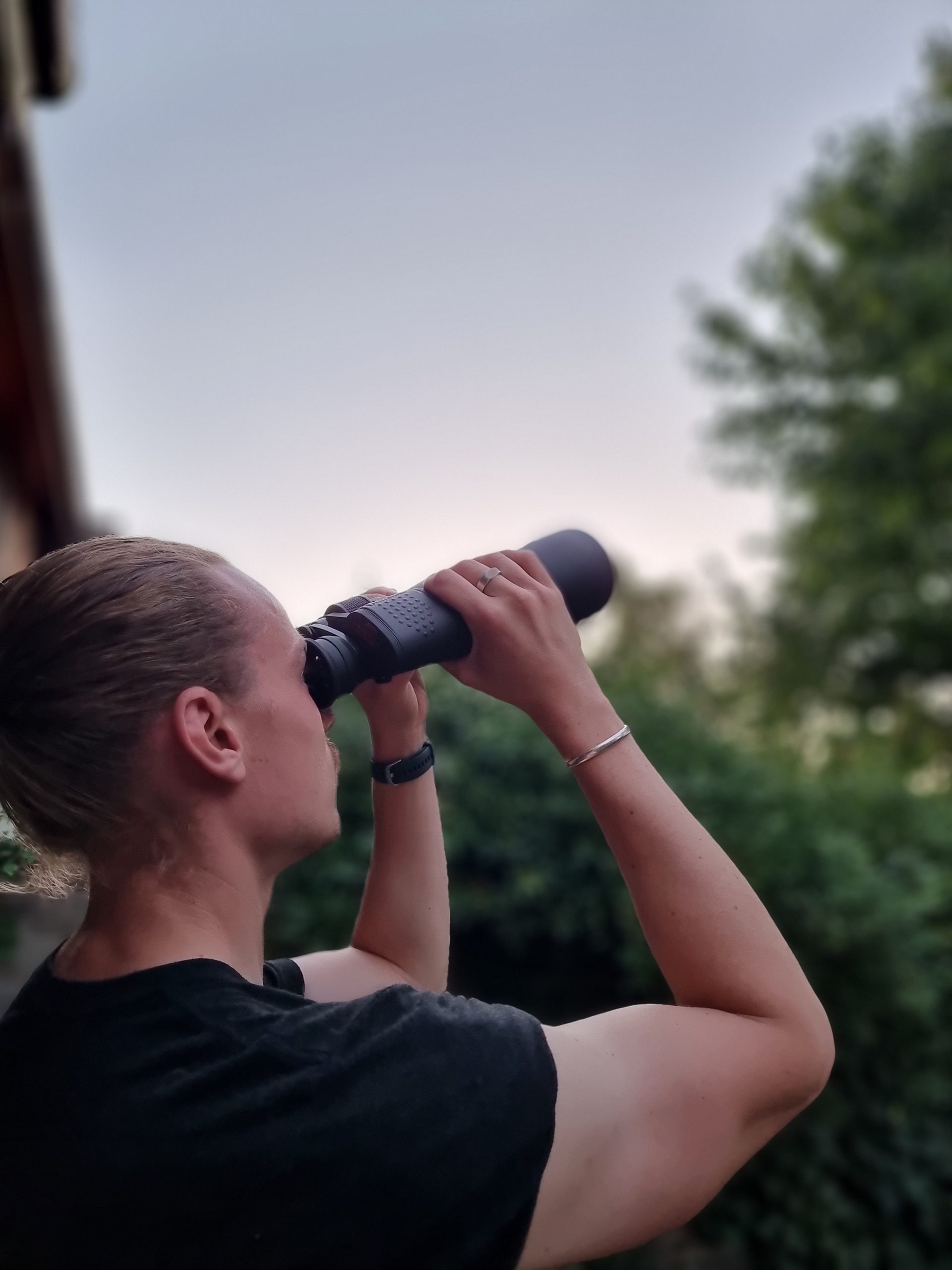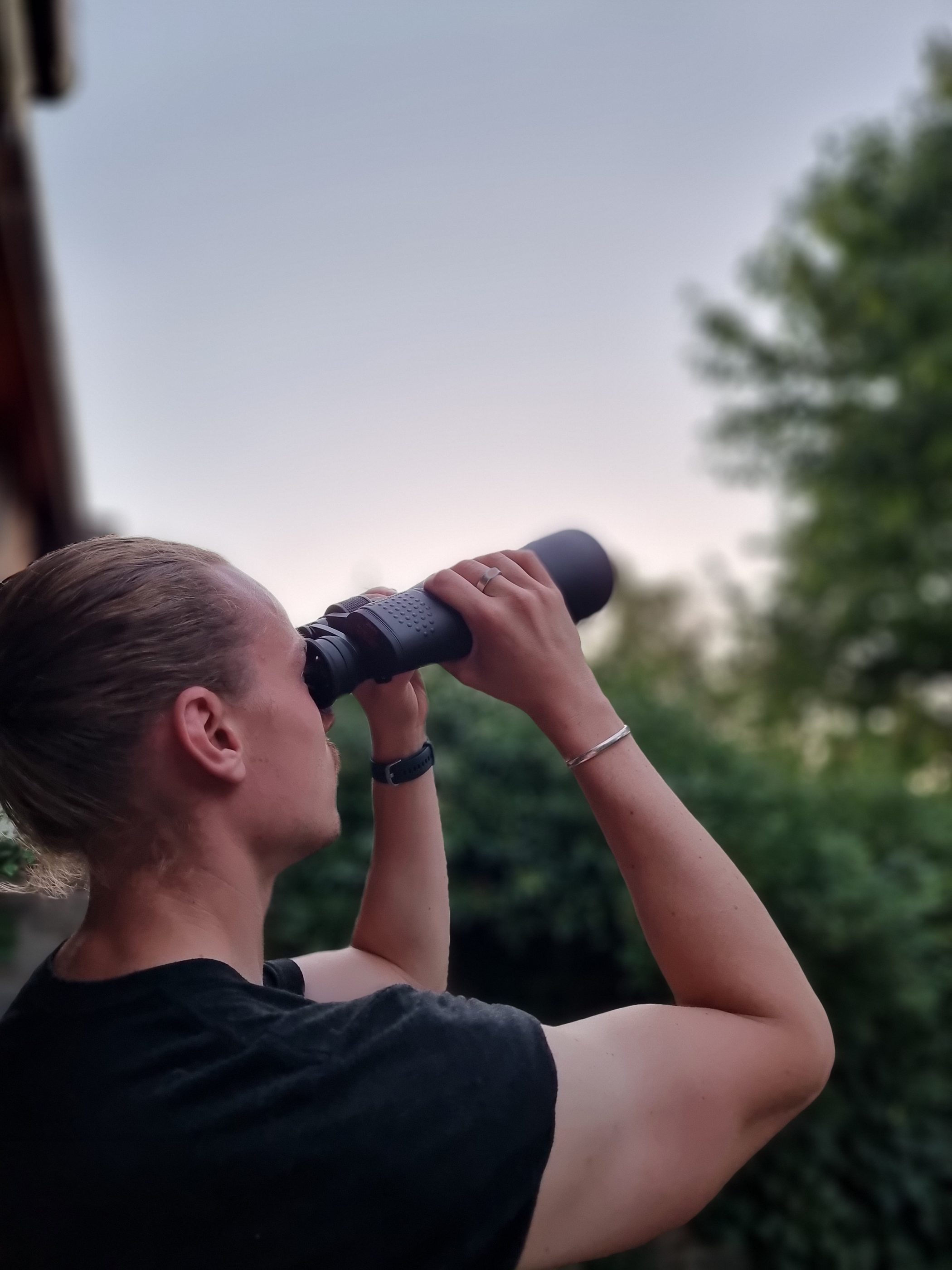There are plenty of places we can get lost. We can get lost in the woods. Lost at sea. Hell, lost in the grocery store. But we’ve never lost in space. We’re always where we’re supposed to be on planet Earth. Astronauts, on the other hand, are given a very unique opportunity. Not just because they fly up into space where there’s no gravity, deadly temperatures, and a view like no other, but also because they are the few people in existence with the ability to get lost in space. But has this ever happened to an astronaut? Time to find out.
So, has an astronaut ever been lost in space? Despite the dangers involved with spacewalks, an astronaut is yet to float off and get lost in space. There have been a few close calls throughout history. Luckily astronauts take intense training programs and have innovative technology resources to ensure they are as safe as possible in space and won’t get lost.
Amazing, isn’t it?
With all those intensely dangerous missions – it is yet to happen.
But it nearly has.
And we shall see why in the next section.
Then we will be turning to why it is yet to happen and the measures put in place to ensure it doesn’t.
So keep reading!
Has An Astronaut Ever Been Close To Being Lost In Space?
There have been a couple of cases where astronauts were close to floating off into space had it not been for the existence of safety equipment, such as tethers.
Space is a very different environment from Earth. In fact, there’s no natural environment on Earth like space in any way.
One of the key differences between space and Earth is the difference in gravity. On Earth, we have gravity. In space, there is no gravity.
Because there is no gravity in space, an astronaut could easily float off.
And it’s not like anyone can rescue them. If they were lost in the woods, the local rangers would look for them.
If they were lost at sea, the coastguard would save them.
If they were lost in the grocery store, they could call for their mommy!
But in space, if an astronaut gets lost, they really do get lost.
Of course, this wouldn’t be when they’re in the space station.
To get lost in space whilst onboard the space station, it would need to deviate from its orbit of the Earth.
Today, we’re talking about how astronauts could get lost whilst out on spacewalks, wearing their spacesuits because that is when they are most vulnerable.
So far, in humankind’s exploration of space, hundreds of astronauts have ventured outside of the space station to complete spacewalks.
Spacewalks, just so you know, are conducted to perform repairs on the space station or to set up experiments. They’re also called extravehicular activities.
During spacewalks, astronauts are attached to the space station so that they don’t float off into space.
They’re attached by what are known as tethers, long pipes that allow them to safely move around the space station.
But space is dangerous. It’s unpredictable.
And for all the precautionary measures taken, an astronaut always risks somehow floating off into space and getting lost.
To this day, no astronaut has gotten lost in space. But that’s not to say that it hasn’t nearly happened.
There have been a few close calls, so let’s look at some.
In 1973, 2 American astronauts, Pete Conrad and Joe Kerwin were on a spacewalk to deploy a solar panel that hadn’t deployed after their launch.
The effort they applied to deploy the solar panel propelled them both with some force. Luckily, their tethers stopped them from floating off into space.
In 1977, it was reported that Soviet Union astronaut Yuri Romanenko was untethered so that he could lift himself out of an airlock to get a view of the cosmos.
He then accidentally propelled himself too forcefully, leading to his sudden drift toward outer space.
Luckily, his comrade, Georgy Grechko, arrived in time to grab Yuri and pull him back to safety.
Why Has An Astronaut Never Been Lost In Space?
Astronauts have never been lost in space because they partake in intense training programs that help keep them safe, and they also have the technology to assist them.
There are two key elements that go hand in hand. Training and technology. These are the two things astronauts use to complete their mission efficiently and, more importantly, safely!
Let’s go through each of these elements one by one, starting with…
Training Program
Becoming an astronaut takes about 10 years. 6 years are for schooling, 2 years of relevant professional experience, then 2 years of basic training.
During the basic training program, astronauts will learn fundamental topics required for when they go up into space. The training will consist of theory-based learning in the classroom and practical training exercises.
A lot of this training will be to do with safety precautions, as being an astronaut is no risk-free job.
Training will specifically target limiting risks involved with floating off and getting lost in space.
For example, spacewalk training, which is where the biggest risk of getting lost in space is posed, is mandatory for training astronauts.
But how do astronauts practice this before going up into space? Well, they train for spacewalks in a zero-gravity environment.
Astronauts wearing a spacesuit go underwater in what is called the Neutral Buoyancy Laboratory (NBL), which is basically a very big swimming pool that is 12 meters deep.
By floating in the water, astronauts can practice extravehicular activities on full-sized space vehicle models.
Although there is gravity in water, it still provides a floating sensation that can help astronauts get used to it whilst performing extravehicular activities.
It can prepare them for the sensations so that they can work safely without a high risk of floating off and getting lost.
Technology
Technology is an astronaut’s friend. We’ve already mentioned the use of tethers, which are big cables that connect astronauts to the space station, so they don’t float off.
But there’s also another very useful piece of technology that helps astronauts in the event that they float off and get lost.
It’s called SAFER, and this is how it works.
If an astronaut loses their connection with the space station, the SAFER allows them to fly back and reattach themselves to their tether.
It’s basically a remote control device that would help the astronaut guide themself back to safety.
However, if the SAFER was faulty or they had forgotten to wear it that day, the astronaut would be without a method of returning to the spacecraft.
In such circumstances, the astronaut’s colleagues on the space station would have to perform a rescue mission.
This would involve another astronaut having to connect multiple tethers together for the astronaut to haul themselves back in with.
If the floating astronaut had been knocked unconscious, then their colleague would have to use the string of tethers as well as their SAFER to bring them back to the spacecraft.
Thankfully, such a mission is yet to take place, and there is a reason for that.
What Would Happen To An Astronaut Lost In Space?
It would depend on which way they were floating. If they were floating away from Earth, their oxygen tank would eventually run out, and they’d die from asphyxiation. If they were floating toward Earth, they would burn to death in the atmosphere.
Unfortunately, a lost astronaut won’t run or float into someone who will give them a lift to where they need to go.
They also won’t just have to wait until they land on another planet, not that that would exactly help matters anyway.
A lost astronaut simply wouldn’t be able to get very far because they don’t have an unlimited amount of oxygen supply.
So I’m afraid to say that a lost astronaut won’t be returning…at least not alive.
Because there are several outcomes for an astronaut that gets lost in space, none of which are pretty.
Which fate an astronaut is dealt with depends on the angle from which they fall off.
They could be left floating (or even spinning) around in space until their oxygen tank ran out, leading to death by asphyxiation.
Or they would float into the Earth’s atmosphere and effectively be fried alive.
If you are an astronaut about to embark on your first mission and you have a preference for how you’d like to go, guess what?
The laws of physics and gravity don’t care.
No amount of flailing your limbs will be able to change your course. Once you’ve floated away from the station, your destiny has already been chosen for you.
So, you could say that losing contact with a space station is a bit more costly than letting go of a balloon in the wind.
Finally
So far, all has been ok. No astronaut is yet to float off into space and get lost.
We have thorough training programs and our good old friend technology to thank for that.
And the smart minds of the astronauts themselves, of course.
Who knows? Maybe one day, someone will get lost in space.
Someone in real life, I mean. Of course, I’ve seen the film gravity!

Hey, my name is Jeremy. I’m a passionate and seasoned astronomer who loves nothing more than observing the night sky. I also love researching, learning, and writing all things Space and the Universe. I created Astronomy Scope to share my knowledge, experience, suggestions, and recommendations of what I have learned along the way while helping anyone to get into and maximize their enjoyment of the hobby.

